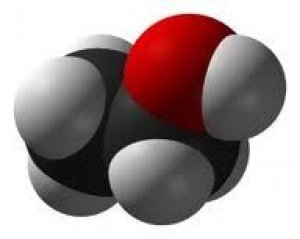
All iLive content is medically reviewed or fact checked to ensure as much factual accuracy as possible.
We have strict sourcing guidelines and only link to reputable media sites, academic research institutions and, whenever possible, medically peer reviewed studies. Note that the numbers in parentheses ([1], [2], etc.) are clickable links to these studies.
If you feel that any of our content is inaccurate, out-of-date, or otherwise questionable, please select it and press Ctrl + Enter.
Study: Alcohol is extremely destructive to cellular DNA
Last reviewed: 30.06.2025
 ">
">In our body, ethanol turns into acetaldehyde, which behaves quite aggressively towards DNA. Two groups of proteins protect genes from the harmful substance: one of them neutralizes acetaldehyde itself, the second is engaged in repairing damaged DNA.
As long as people have been familiar with alcohol, alcohol is just as diverse in its effects on the human body. No sooner had one group of researchers reported that alcohol does not kill brain cells at all, but only weakens the synaptic contacts between them, than scientists from the British Medical Research Council declared something completely opposite: alcohol is extremely destructive to cellular DNA.
As researchers write in the journal Nature, acetaldehyde, a by-product of ethanol processing in our bodies, can cause catastrophic damage to DNA. And we would die from the first glass if cells did not have a two-stage defense system: the first stage includes enzymes that neutralize acetaldehyde itself, the second - a set of proteins that take on emergency repair of damaged DNA. Scientists experimented with pregnant mice in which both systems were turned off: in such animals, even a small single dose of alcohol led to the death of the fetus; moreover, the death of blood stem cells was observed in the adult mice themselves.
Two groups of data prompted scientists to check the effect of alcohol on DNA. Firstly, people suffering from Fanconi syndrome, a severe hereditary disease, are extremely sensitive to alcohol. In these patients, the proteins responsible for DNA reparation do not work, as a result of which acetaldehyde causes irreversible damage to genes, and this leads to blood diseases and cancer. On the other hand, people with congenital alcohol intolerance are very susceptible to esophageal cancer, while their acetaldehyde neutralization system does not work. In both cases, the consequences of alcohol consumption are expressed in diseases affecting the molecular-genetic apparatus of the cell.
The enzyme that deactivates acetaldehyde and the Fanconi proteins prevent DNA damage that underlies either cell death or cancerous degeneration. However, regular alcohol consumption can override these protective systems, which, unfortunately, can often be seen in the developmental defects known as fetal alcohol syndrome that alcoholic parents inflict on their children.

 [
[